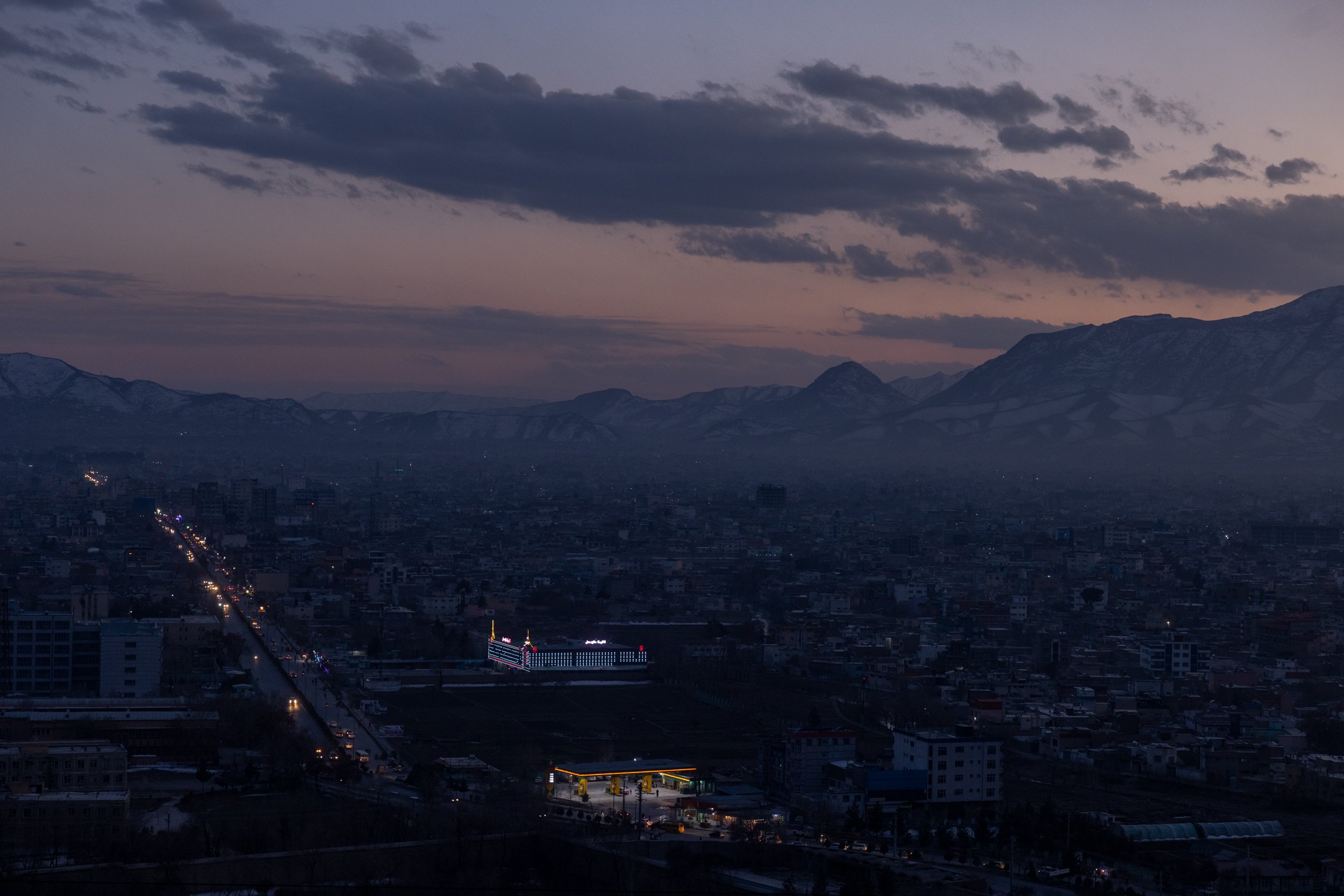























Nasir Ahmad Ahmadi, the head of the Taliban police in Kabul's Police District 11. Mullah Ahmadi heads the Abdulmanan group, named after his late brother.

Nasir Ahmad Ahmadi the head of Abdulmanan Group, a Taliban police unit named after his late brother, poses for a portrait in the unit's base base in Police District 11, Kabul.

A Taliban searches a young boy on a bike in Kabul. The Taliban is a member of the Abdulmanan Group, led by Mullah Ahmad Ahmadi.

Taliban discuss after an explosion at a petrol station led to confusion and shots fired, Kabul. The Taliban are at the headquarters of the Abdulmanan Group, led by Mullah Ahmad Ahmadi.

A militia, mostly made up of local Hazara, patrols the streets of Bamyan. Despite having suffered under Taliban rule in the 90ies and early 2000s, some Hazara have joined ranks of the Taliban. The militia members neither get paid, nor get expenses.

Workers load coal into bags close to the remains of the Buddhas of Bamyan. The area is part of the UNESCO World Heritage Site of the Buddhas and was off-limits for any commercial activitiy under the previous leadership. Now, some ethnic Tadjik hope that the Taliban leadership will allow developement in the area.

A baker sits in his shop late evening with much of his bread still unsold, Bamyan. Since the Taliban took control of the country, the economy has all but collapsed. More than half the country’s population are expected to face potentially life-threatening food insecurity this winter.

Muhammed Kazim, 10, begs for money in the streets of Bamyan. Since the Taliban took power and the economy of the country collapsed, Muhammed has been the sole breadwinner of his family. He makes about a one Dollar per day. More than half the country’s population is expected to face food insecurity this winter.

Women seen begging in the center of Kabul. Since the Taliban took control of the country, the economy is under intense stress. Inflation has been soaring, and millions of Afghans are facing severe food insecurity.

Mohammad Sadiq, spokesperson for the Ministry for the Propagation of Virtue and the Prevention of Vice poses for a portrait in Kabul. The ministy was formed by the Taliban after their take-over.

Osman Awaz Khan, 45-50 years old, burns plastic at a gathering place for drug users in Kabul. Since the takeover of Afghanistan by the Taliban, drug use has become more visible in the country’s capital Kabul. The new rulers have taken a heavy handed approach against consumers. They have rounded them up and forced them into squalid rehab centers, where weaning is cold turkey and therapy confinement.

A man smokes crystal meth in Kabul. Since the takeover of Afghanistan by the Taliban, drug use has become more visible in the country’s capital. The new rulers have taken a heavy handed approach against consumers. They have rounded them up and forced them into squalid rehab centers, where weaning is cold turkey and therapy confinement.

Mullah Abdullah Sarhadi talks on the phone in his office in Bamyan. Sarahadi has been a member of the Taliban since the 90ies. He was in charge of military operations in Bamyan and effectively in charge of the region when the world-famous Buddhas were blown up by the Taliban. He later served four years in Guantanamo. Now he is governor of the province.

Ransacked artefacts with notes by French archeologists seen in the historical site Shahr-e Gholghola, or the City of Screams, Bamyan. When the Taliban took over Bamyan many of the historical sites were looted and damaged. When the Taliban ruled over Afghanistan in the late 90ies and early 2000s they destroyed the already damaged Buddhas of Bamyan.

A recently charred wall seen in the historical site Shahr-e Gholghola, or the City of Screams, Bamyan. When the Taliban took over Bamyan many of the historical sites were looted and damaged. When the Taliban ruled over Afghanistan in the late 90ies and early 2000s they destroyed the already damaged Buddhas of Bamyan.